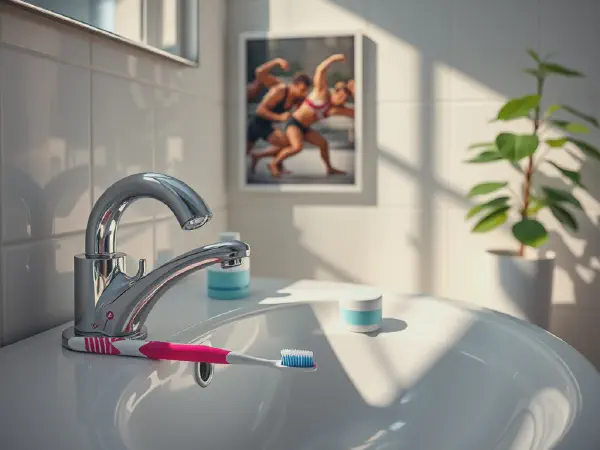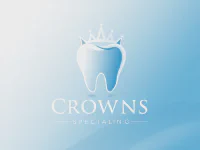Top Best Practices for Dental Hygiene After Wrestling Matches

Comprehensive Guide to Dental Hygiene
Dental hygiene is an essential aspect of maintaining overall health and well-being. It involves practices that ensure the mouth, teeth, and gums are kept clean and free from diseases. Good dental hygiene helps prevent cavities, gum disease, and bad breath, contributing to a confident smile. Establishing a solid oral care routine is crucial, as it sets the foundation for long-term dental health and can significantly influence one's quality of life.
The importance of proper dental hygiene cannot be overstated. According to numerous health organizations, individuals who adhere to effective dental care routines experience fewer dental issues and enjoy better overall health. This is because poor oral health can lead to systemic health problems, including heart disease and diabetes. Regular brushing and flossing, along with routine dental check-ups, are fundamental components of dental hygiene and should be prioritized to maintain optimal oral health.
In addition to basic practices, it's vital to understand the specific needs of different groups, such as athletes. For instance, individuals involved in high-contact sports, like wrestling, must be extra vigilant about their dental hygiene. The physical nature of these sports can lead to increased risk for dental injuries, making preventive measures and post-event care even more critical. Athletes need to adopt comprehensive dental hygiene routines tailored to their unique circumstances to avoid long-term consequences.
Moreover, dental hygiene education plays a significant role in promoting oral health, especially among young athletes. Schools and sports organizations must prioritize providing educational resources about the importance of dental care, the proper techniques for brushing and flossing, and the importance of regular check-ups. By fostering a culture of awareness and education regarding dental hygiene, the prevalence of poor oral health can decrease significantly among all age groups.
Ultimately, promoting dental hygiene goes beyond individual practices. Community involvement, educational outreach, and accessible dental care services are all crucial factors in improving the dental hygiene landscape. As dental hygiene continues to evolve with new research and innovations, it remains essential to adapt practices for optimal health and well-being.
Importance of Dental Hygiene
Understanding the significance of dental hygiene in athletes is crucial for preserving their oral health. Athletes often experience intense physical activity, which can influence their dental status. For example, dehydration during rigorous training can lead to dry mouth, heightening the risk of tooth decay and gum disease. Therefore, athletes should prioritize maintaining optimal hydration levels while also ensuring they follow stringent dental hygiene routines. This includes regular brushing, flossing, and using mouthwash to combat bacteria and maintain overall oral health.
Wrestling, like other contact sports, can significantly impact oral health due to the inherent risk of injuries. The physical clashes and grappling involved can lead to dental trauma, including chipped teeth or dislodged dental work. Consequently, wrestlers must be proactive in managing their oral health to mitigate these risks and ensure they maintain a functional and aesthetically pleasing smile.
Neglecting dental care after wrestling can lead to severe consequences, including infections, chronic pain, and the loss of teeth. Injuries that go untreated can develop into more serious complications over time, leading to significant dental and health issues. It is essential for athletes, especially wrestlers, to develop a routine that includes immediate dental care following any physical match or practice to safeguard their oral health.
Oral Care Routine Post-Match
Post-match, athletes should follow a thorough oral care routine to cleanse their mouths of any bacteria and debris accumulated during wrestling. This includes brushing teeth with fluoride toothpaste for at least two minutes, flossing between teeth to remove trapped food particles, and rinsing with an antibacterial mouthwash to kill harmful bacteria.
Recommended dental products for wrestlers should include a soft-bristled toothbrush, fluoride toothpaste, dental floss, and alcohol-free mouthwash. Additionally, using a tongue scraper can enhance overall cleanliness and freshen breath. These products are designed to provide effective cleansing without causing further irritation to sensitive gums or oral tissues after a match.
Timing is also critical when it comes to dental care after matches. Athletes should ideally aim to carry out their oral hygiene routine immediately following the match. This not only helps to address any immediate debris and bacteria but also reinforces the habit of prioritizing dental health after high-intensity activities.
Dealing with Mouth Injuries
Common dental injuries in wrestling may include chipped teeth, fractures, and soft tissue injuries to the gums and inner cheeks. These injuries can occur as a result of contact with other athletes, as well as from accidental falls. Being aware of these risks is vital for wrestlers in managing their oral health proactively.
In the event of an oral injury, first aid is paramount. Rinse the mouth gently with warm salt water to cleanse the area, apply a cold compress to reduce swelling, and seek dental care promptly. If a tooth is knocked out, it should either be placed back in its socket (if possible) or stored in milk until a dentist can be consulted. Timely action can mean the difference between saving or losing a tooth.
Long-term care for wrestling-related dental trauma includes regular dental check-ups to monitor any damage or complications. Preventive measures, such as using custom mouthguards during practices and competitions, can significantly reduce the incidence of injuries. Additionally, adhering to a solid oral care routine can help in maintaining overall dental health, especially post-injury.
Preventive Measures
The use of mouthguards during wrestling is one of the most effective preventive measures athletes can take. Custom-fitted mouthguards can minimize the risk of dental injuries and protect against concussions. Educating athletes on the importance of mouthguards is crucial to ensuring compliance and safeguarding their dental health during contact sports.
Regular dental check-ups are essential for detecting potential issues early on. Athletes should aim for at least two visits to their dentist each year for cleanings and examinations. These visits allow professionals to identify and address any problems before they escalate, ensuring athletes can continue competing at their best without worrying about their oral health.
Dietary considerations also play a vital role in maintaining oral health. Athletes should be mindful of their sugar intake, as sugary foods and beverages can contribute to cavity formation. Incorporating nutrient-rich foods, such as fruits and vegetables, alongside adequate hydration can promote healthy gums and teeth. A balanced diet supports not only performance but also long-term dental hygiene.
Educational Resources
Best practices from dental professionals are invaluable resources for athletes looking to enhance their dental hygiene. Many organizations provide guidelines that outline effective techniques for oral care, specific to the needs of athletes. Collaborating with dental professionals to create tailored programs can significantly improve athletes' understanding and engagement with their dental health.
Workshops on oral care for athletes are an essential means of educating wrestlers and sports teams about the importance of dental hygiene. These sessions can cover proper techniques for brushing and flossing, the role of nutrition, and the necessity of routine dental check-ups, thereby instilling lifelong habits in young athletes.
Online resources for dental hygiene education allow athletes and their families easy access to vital information about oral care. Websites and platforms dedicated to dental hygiene provide valuable tips, product recommendations, and information regarding the latest research in oral health. Utilizing these resources can empower athletes to take charge of their dental hygiene like never before.
